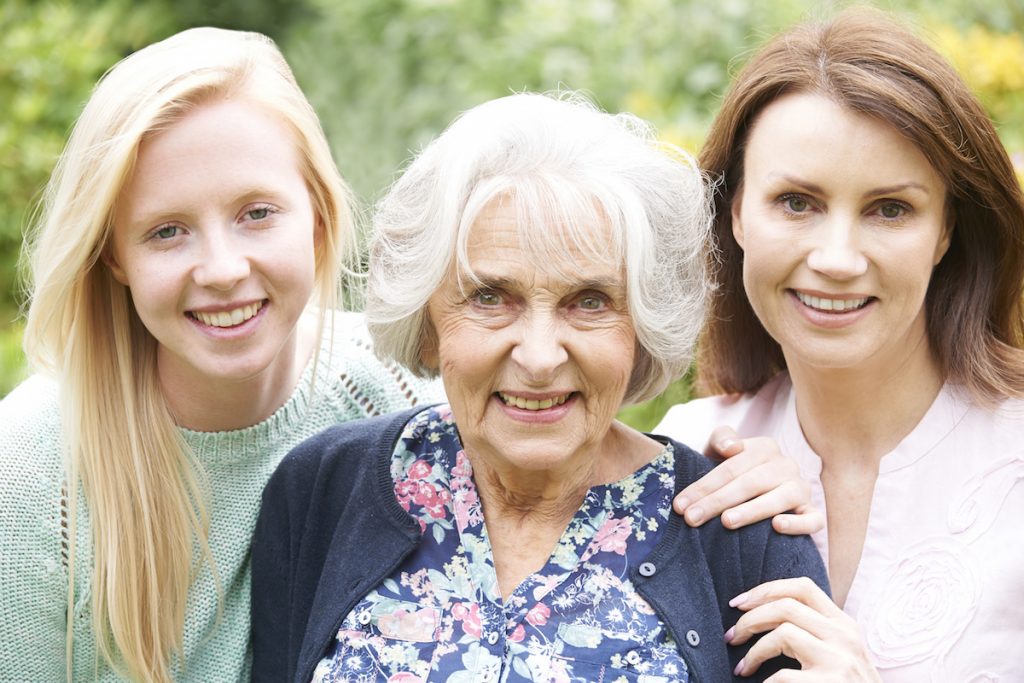How To Care For Family From a Distance

Greater opportunities and a flair for adventure have resulted in at least one unintended consequence. Family members who would have remained close to home and available through times of crisis are instead scattered throughout the U.S. and, in many cases, throughout the globe. It is only when they visit or call home that they realize an elderly parent or relative needs help. This coupled with their parent’s understandable desire for privacy and independence makes it difficult to know how to handle long distance relationships.
Add to this the dilemma of staying in touch with a brother or sister who lives nearby and sees Mom or Dad regularly, and some communication gaps will be inevitable.
The sister who takes Mom shopping and to doctor’s appointments may feel frustrated and overwhelmed. Her brother who lives in another State might feel either that more should be done or that nothing is wrong. These are only a few examples. In some cases no one lives in the area or parents and older relatives might flatly refuse any assistance from anyone including outside aides and companions.
I have seen daughters, sons, and other family members care for an elderly relative for as long as they can reasonably handle it. Then, needing a break, a primary caregiver asks other family members to help. Often, after information is shared, they get it. This is no time to suffer in silence.
Parents and older relatives might move from one family member’s home to another to relieve the burden placed on the first caregiver. This should be done by agreement after full, open and honest discussion recognizing the responsibility being assumed not only by the family member but by his spouse, children, and household members. These moves often work but should be planned and not done precipitously. In all cases, medical records and medication and health care information should be disclosed and passed on to the next person assuming responsibility. New Health Care Powers of Attorney and Financial Powers of Attorney should typically be prepared in the State where a parent is making his new home.
In one case a daughter who had moved Mom into her home in another State, decided from time to time that she wanted a break. She would send an e-mail to her brother in Pennsylvania and place her mother on a flight. Mom would arrive in Pennsylvania confused and without needed information regarding her care. This is not the ideal way to handle this kind of situation.
Family Agreements (also referred to as Personal Services Agreements or Personal Services Contracts) which I have discussed before, can help by assuring that everyone knows what is expected and no one feels neglected or out of the loop. Today especially with changes in the law, they should be in writing describing who is responsible for what and what expenses should be reimbursed.
Regardless whether the reader lives close to a parent or older relative needing help or at a distance, here are some choices.
Moving In. Some family members erase the distance by moving in and forming a new extended family. This is not limited to sons and daughters. Grandchildren and their spouses and families or nieces and nephews may move in to assist. If the older person’s home is larger or needs work, the younger relatives can assist. If they are to receive an interest in the home in return particularly where they gave up their own home, they should consult with an attorney. A Will leaving the house to them might not be enough.
Moving Dad In. Sometimes Dad moves in with his son or daughter’s family and contributes to regular household expenses. One positive effect with these melded families is to reduce the social isolation so common especially among widowers and widows.
Arranging with others for care while you are away. If your older relative is able to manage most of the time on his own or if he is in an assisted living or other environment outside his house, you might make arrangements with someone close by to check in. Geriatric care managers may help. Some law firms, especially those that engage in Life Care Planning, have care coordinators on staff who can follow up.
Solutions change over time. Family members living at a distance should seek help as needed, stay alert and informed, designate one nearby family member in charge who shares information, and be ready to shift gears.
About the Author Janet Colliton
Esquire, Colliton Law Associates, P.C. Janet Colliton has practiced law for over 38 years, 37 of them in Chester County, Pennsylvania, a suburb of Philadelphia. Her practice, Colliton Law Associates, PC, is limited to elder law, Medicaid, including advice, applications and appeals, and other benefits planning including Veterans benefits, life care and special needs planning, guardianships, retirement, and estate planning and administration.
